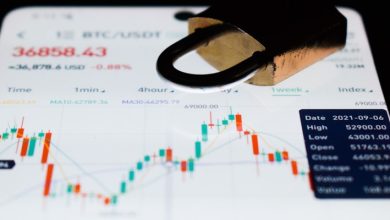Investing in NFTs: Opportunities and Challenges

- Understanding NFTs and their potential for investment
- The rise of NFTs in the digital art market
- Exploring the various opportunities for investing in NFTs
- The challenges of investing in a volatile NFT market
- Navigating the legal and ethical considerations of NFT investments
- The future of NFTs as a new asset class for investors
Understanding NFTs and their potential for investment
NFTs, or non-fungible tokens, have gained significant attention in the investment world due to their unique properties. Unlike cryptocurrencies such as Bitcoin or Ethereum, NFTs represent ownership of a specific digital asset, whether it be art, music, collectibles, or even virtual real estate. This exclusivity makes NFTs attractive to investors looking for something different from traditional financial instruments.
One of the main draws of NFTs is their potential for high returns on investment. As with any emerging market, there is a level of risk involved, but for those willing to take the chance, the rewards can be substantial. Some NFTs have sold for millions of dollars, making early adopters incredibly wealthy. However, it’s essential to remember that not all NFTs will appreciate in value, and like any investment, due diligence is crucial.
Investing in NFTs also allows investors to support artists and creators directly. By purchasing an NFT, investors can help artists monetize their work in a new and innovative way. This direct connection between creator and consumer can be appealing to those looking to make a positive impact with their investment dollars.
The rise of NFTs in the digital art market
The rise of Non-Fungible Tokens (NFTs) in the digital art market has been nothing short of revolutionary. NFTs have opened up a whole new world of opportunities for artists and collectors alike. These digital assets allow artists to tokenize their work, providing a unique certificate of ownership that cannot be replicated or forged. This has led to a surge in interest from art enthusiasts looking to invest in this emerging market.
Exploring the various opportunities for investing in NFTs
Investors looking to diversify their portfolio may find various opportunities for **investing** in NFTs. Non-fungible tokens have gained popularity in recent years as a new asset class with the potential for high returns. One option for **investors** is to purchase NFTs directly from artists or creators. By acquiring digital artwork or collectibles, **investors** can support creators while potentially benefiting from the **appreciation** in value of the NFT.
Another avenue for **investing** in NFTs is through online marketplaces dedicated to the buying and selling of digital assets. Platforms like OpenSea, Rarible, and Foundation provide **investors** with access to a wide range of NFTs, including art, music, and virtual real estate. **Investors** can browse through different listings, place bids on items they are interested in, and potentially resell them for a profit in the future.
Additionally, **investors** can consider investing in NFT funds or portfolios offered by **investment** firms. These funds typically pool together **investors’** money to purchase a diversified collection of NFTs, managed by professionals with expertise in the space. This option allows **investors** to gain exposure to a broader range of NFTs without having to choose individual assets themselves.
Overall, exploring the various opportunities for **investing** in NFTs requires **investors** to conduct thorough research, assess their risk tolerance, and stay informed about the latest trends in the digital asset space. By carefully evaluating different options and staying diversified, **investors** can potentially capitalize on the growing popularity of NFTs while navigating the challenges associated with this emerging asset class.
The challenges of investing in a volatile NFT market
Investing in Non-Fungible Tokens (NFTs) can be a lucrative opportunity, but it also comes with its fair share of challenges. One of the main challenges of investing in NFTs is the market’s volatility. The value of NFTs can fluctuate wildly, making it difficult to predict future returns. This volatility can be attributed to various factors such as changing trends, market speculation, and the overall sentiment of investors.
Due to the unpredictable nature of the NFT market, investors may find it challenging to make informed decisions about when to buy or sell their assets. This uncertainty can lead to significant financial losses if not managed properly. It is essential for investors to conduct thorough research, stay informed about market trends, and seek advice from experts to navigate the volatile NFT market successfully.
Furthermore, the lack of regulation in the NFT space adds another layer of complexity to investing in this market. Without clear guidelines and oversight, investors are more vulnerable to fraud, scams, and other malicious activities. It is crucial for investors to exercise caution, conduct due diligence on NFT projects, and only transact with reputable platforms to mitigate these risks.
Navigating the legal and ethical considerations of NFT investments
Investors looking to capitalize on the growing popularity of NFTs must carefully navigate the legal and ethical considerations that come with this new form of investment. One key legal consideration is the issue of copyright infringement, as NFTs are often created using digital content that may be copyrighted. It is essential for investors to ensure that they have the proper rights to the content being tokenized to avoid legal repercussions.
Another critical legal consideration is the lack of regulation in the NFT market, which can make it challenging to resolve disputes or seek recourse in the event of fraud or other illegal activities. Investors should conduct thorough due diligence on the platforms and artists they are dealing with to minimize the risk of falling victim to scams or unethical behavior.
Ethical considerations also play a significant role in NFT investments, as the environmental impact of minting NFTs has come under scrutiny due to the high energy consumption of blockchain networks. Investors may want to consider the environmental implications of their NFT investments and seek out more eco-friendly options to align with their values.
In conclusion, while NFT investments offer exciting opportunities for investors, it is crucial to approach this new asset class with caution and awareness of the legal and ethical considerations involved. By staying informed and conducting thorough research, investors can mitigate risks and make more informed decisions when diving into the world of NFTs.
The future of NFTs as a new asset class for investors
The future of Non-Fungible Tokens (NFTs) as a novel asset category for investors looks promising. NFTs have gained significant attention in recent years due to their unique digital properties and ability to represent ownership of digital or physical assets in a decentralized manner.
Investors are increasingly viewing NFTs as a viable investment option due to their potential for high returns and diversification benefits. As the market for NFTs continues to grow, more opportunities are emerging for investors to capitalize on this new asset class.
One of the key advantages of investing in NFTs is the potential for high liquidity, as NFTs can be easily bought and sold on various online marketplaces. Additionally, NFTs offer a level of transparency and security that traditional assets may not provide, making them an attractive option for investors looking to diversify their portfolios.
However, investing in NFTs also comes with its own set of challenges. The market for NFTs can be volatile, with prices fluctuating rapidly based on demand and market trends. Additionally, the lack of regulation in the NFT space can make it difficult for investors to assess the true value of an NFT.
Despite these challenges, the future of NFTs as an asset class for investors looks bright. As more investors become familiar with NFTs and understand their potential, the market for NFTs is likely to continue growing and evolving. For investors looking to diversify their portfolios and take advantage of the opportunities presented by digital assets, NFTs offer a unique and exciting investment opportunity.



